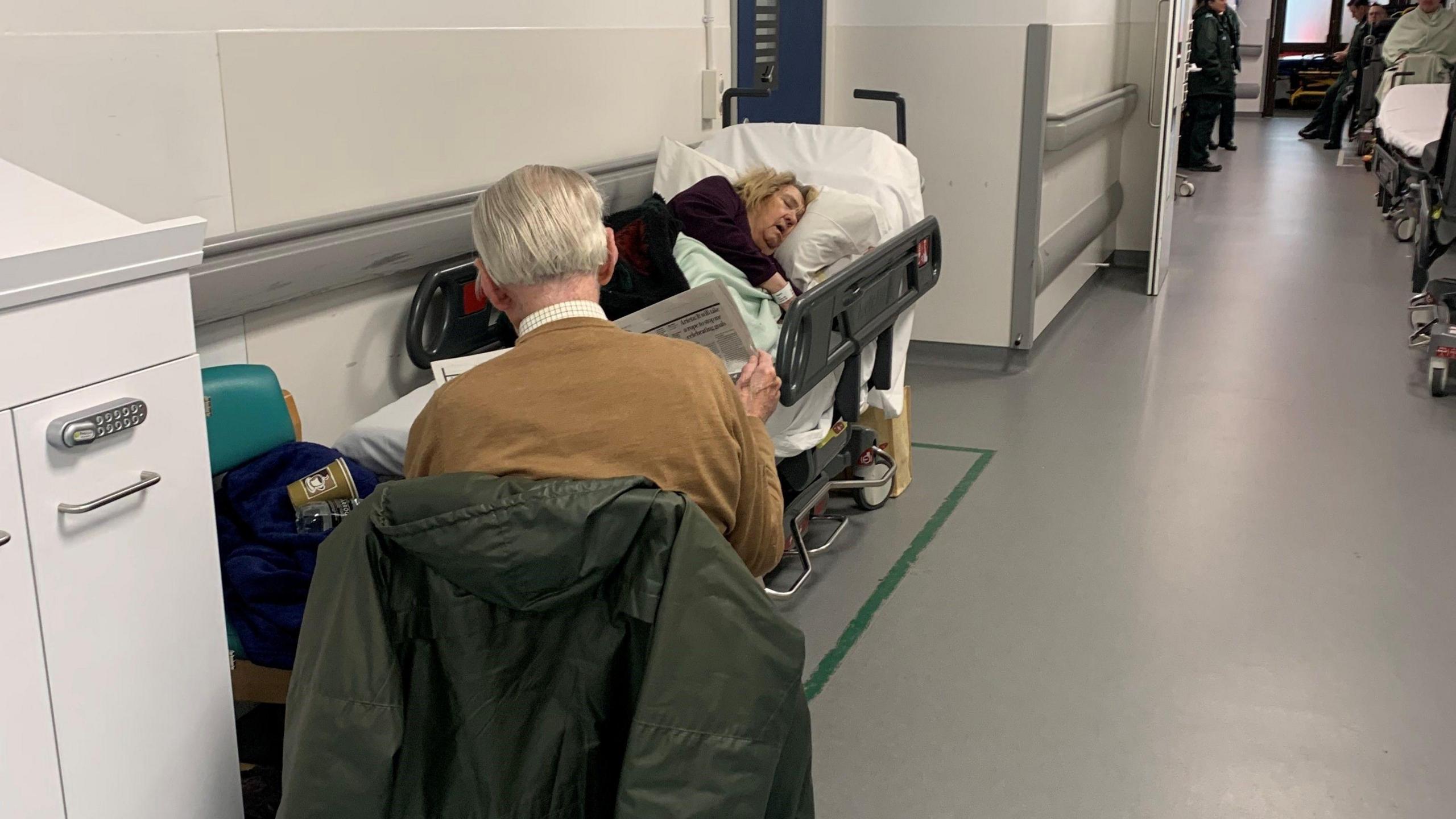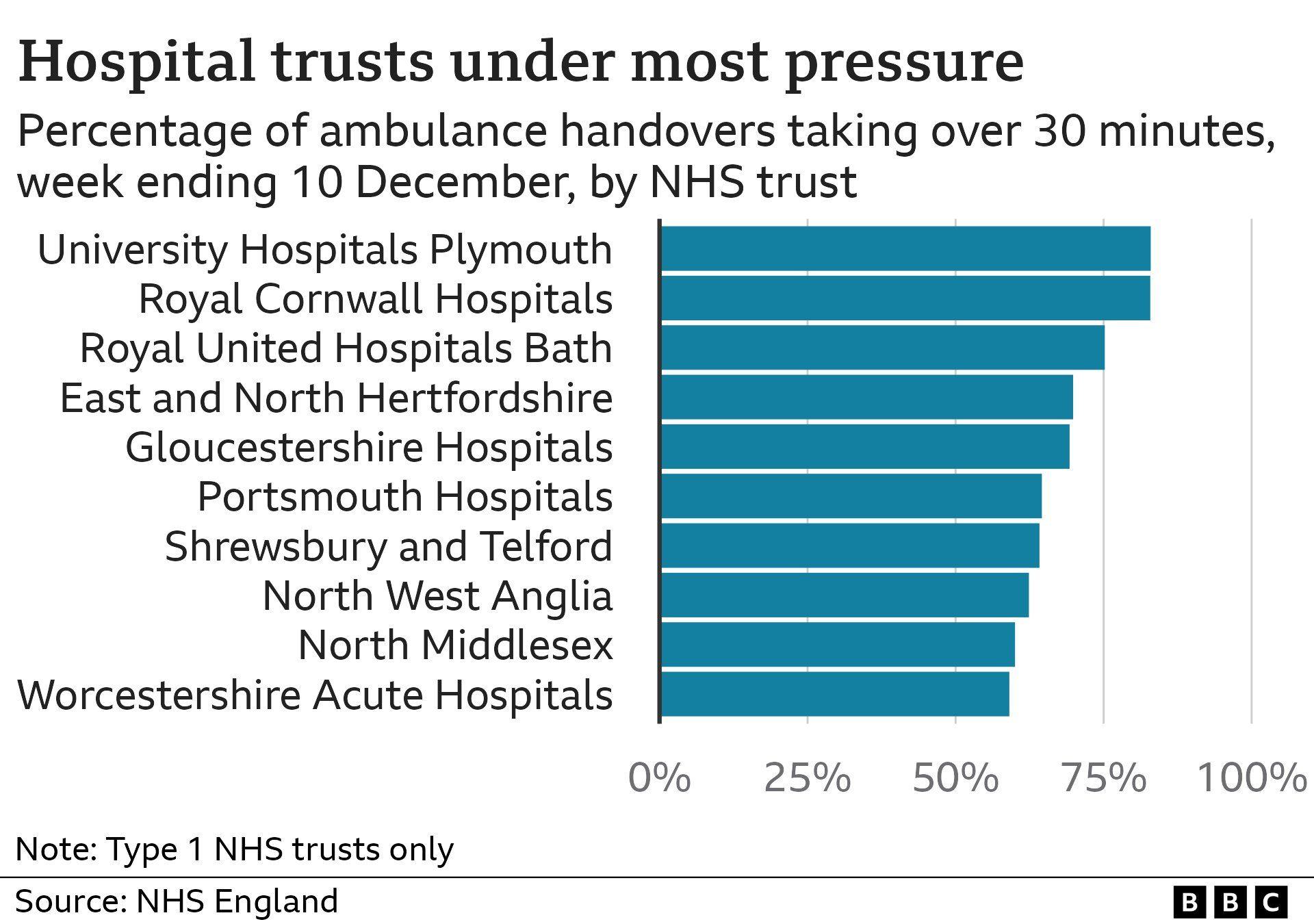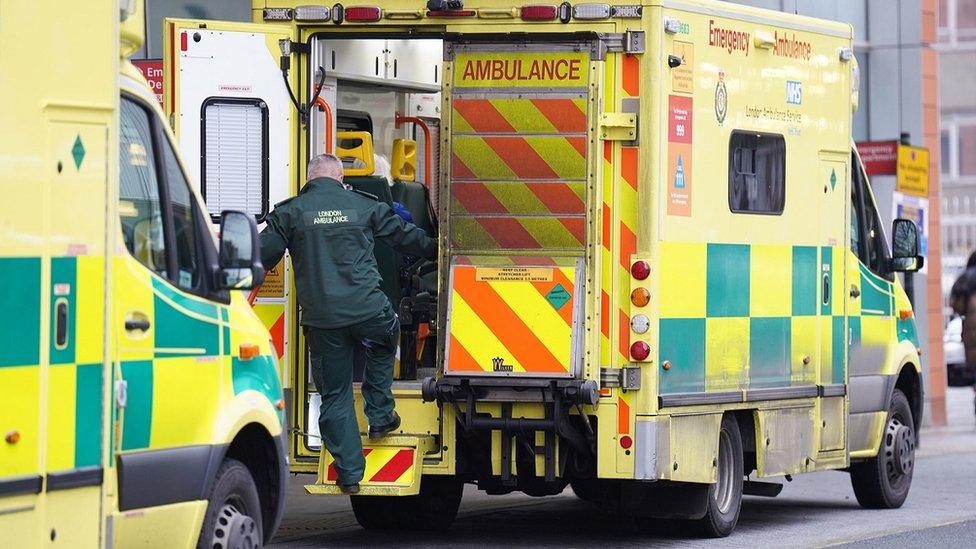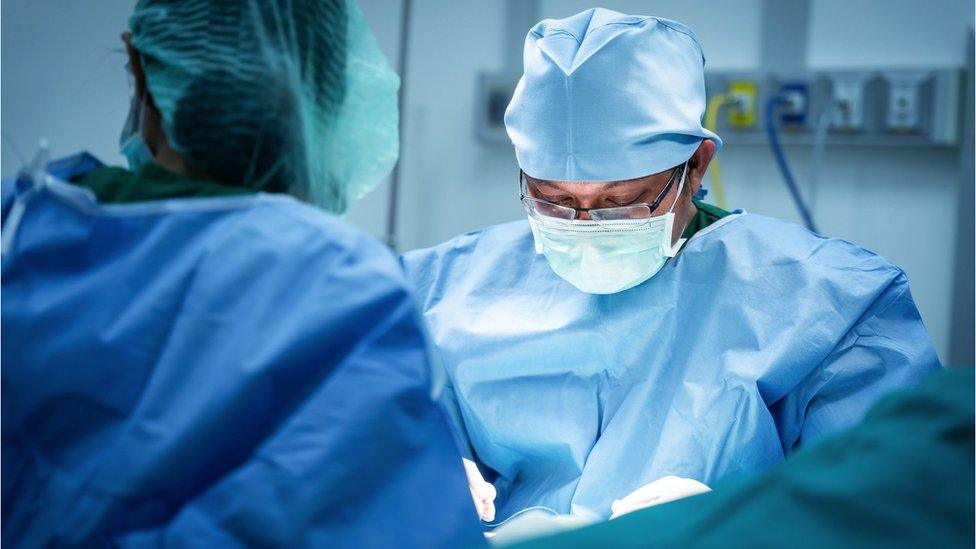Elderly woman spent 38 hours on hospital trolley

Nan Roberts, 88, who gave permission for this photo to be used, had to lie on a trolley for 38 hours
- Published
The NHS has apologised to an elderly woman who spent 38 hours on a trolley in a hospital corridor due to overcrowding.
Nan Roberts, 88, from Newquay, was admitted to Royal Cornwall Hospital in Truro on 8 December after suffering a head injury that left her with a bleed on the brain.
Her daughter, Sandra Roberts, said her treatment was "awful to witness".
Royal Cornwall Hospitals NHS Trust said her experience was "not something any of us want for our patients".
The ambulance service warned dangerous delays for people needing emergency care were putting them at risk.
According to NHS figures for the week ending Sunday 10 December, more than 80% of ambulance handovers took longer than 30 minutes at Royal Cornwall Hospitals NHS Trust and University Hospitals Plymouth NHS Trust - the joint-worst figure in England.

Sandra Roberts said her mother waited overnight for an ambulance before she was left on the trolley.
"The elderly, in particular, are very vulnerable," she said.
"They need to be in the right place, and my mum certainly wasn't.
"It was just awful to witness, it's diabolical, nobody should have to be like that."
She said the capacity of the NHS was "nowhere near where it should be".
"This is a problem that's been ongoing for a long, long time," she added.
"The demand on the NHS and the capacity are way, way apart from each other."
'Exceptionally busy'
Royal Cornwall Hospitals NHS Trust apologised to the 88-year-old, who is now on a ward.
It said: “We are very sorry for Ms Robert’s experience; it is not something any of us want for our patients.
"Our staff are working incredibly hard, during an exceptionally busy time, to ensure patients continue to receive the care and treatment they need throughout their time in hospital.
"Patients will continue to receive the care, diagnostic tests and treatment they need, no matter where they are waiting."
Follow BBC Cornwall on X (formerly Twitter), external, Facebook, external and Instagram, external. Send your story ideas to spotlight@bbc.co.uk, external.
- Published14 December 2023

- Published25 May 2023
